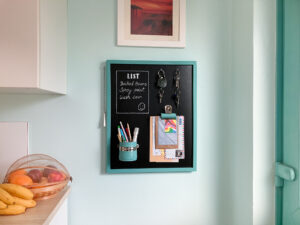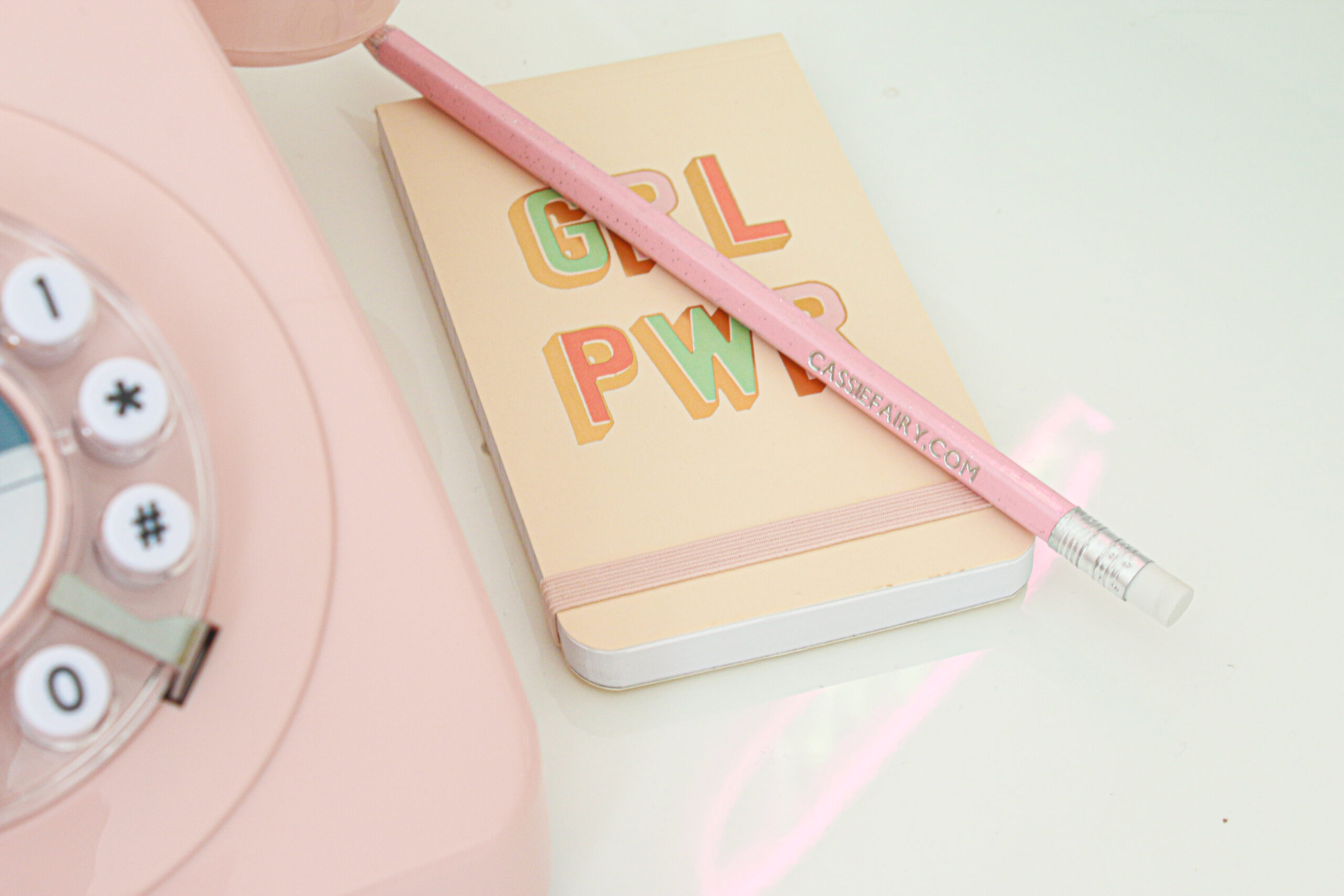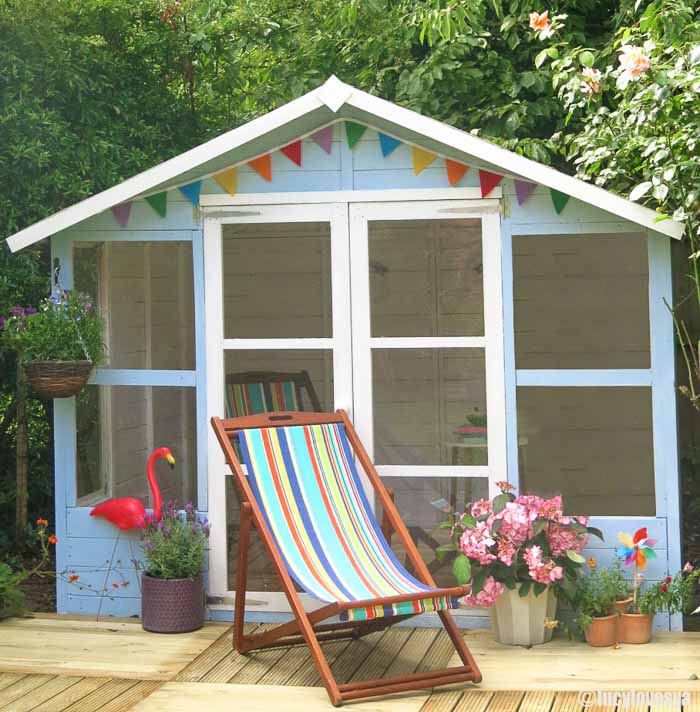
I’ve previously shared a blog post on the 5 steps to starting your own business so you might want to check that out too!
What do you need to do to get started?
Even if you’re just at the stage of naming your business, there are plenty of things you’ll need to consider when setting up a business – not least whether a domain name or social profile is available in your brand name. For starters, you’ll need to register your business and let the HMRC know that you’re trading. Then you can get on with investigating:
- Registering as a sole trader, limited company or partnership.
- Getting any permits or licenses from the local council.
- Arranging insurance to cover your business activities.
- Decide whether to work from home or get business premises.
- Organising your business accounts – new Making Tax Digital regulations will apply soon so it might be a good practice to use the correct software straight away.
- So, this is one that a lot of soon-to-be business owners completely forget about; it doesn’t matter where you plan to run your business, whether at home or in a physical space, but you’re going to need reliable internet. This means no outages, high speed, and security. Ideally, you’ll need to look into internet providers near me and weigh your options. Seriously, not all providers are the same, and sometimes, paying just a little bit extra can go a long way!

How are you going to finance your start-up?
It’s inevitable that you’ll need to spend out some money to set up your indie business, whether that’s getting a website, buying equipment or just covering your running expenses for the first few months until you start making an income. There are a few ways you can cover your start-up costs, such as:
- Saving up your own money in advance to fund the start-up.
- Borrowing money from friends and family – but only if you can be sure that you’ll be able to return their investment.
- Using personal credit, although you should be aware that you’ll be paying interest and repayments, and it’s not always a good idea to start a business with debt.
- A Dragon’s Den-style mezzanine loan, which combines equity shares with a repayment loan.
- Selling assets such as property or vehicles to inject money into the business.
What will the company structure be?
Even though it might just be you starting up your business at the moment, it doesn’t mean it’s always going to be that way. However, if you’re considering employing people to help you, there are many things you’ll need to consider including:
- Payroll software and human resources procedures.
- Gathering tax and National Insurance for your employees.
- Insurance to cover employees at work.
- Organising pensions.
- Alternatively, can you hire freelancers or agency workers to help you?
Bringing people onboard early on is potentially good for growth, but the aforementioned HR procedures are just the start, because this also necessitates adopting the best tools to make them achievable. With a ton of top-notch HR software solutions out there, it’s less of a pain to get things right.
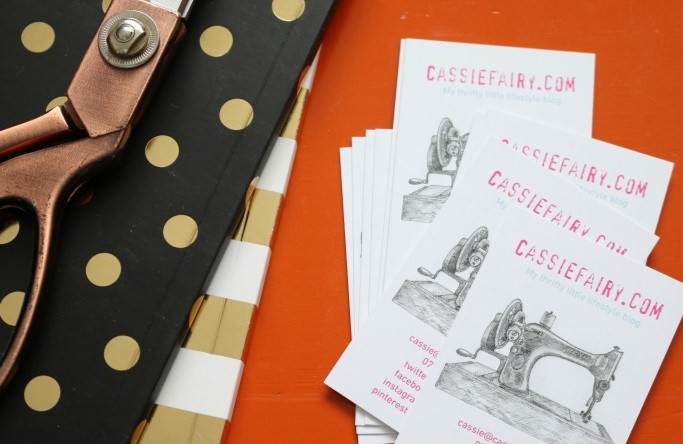
What paperwork will you need?
When you’re starting a business – whatever industry it is – there’s sure to be some paperwork involved in getting started. This is the legal, sensible element of launching your new business as you must make sure that you have the all correct licenses, insurances and permits to carry out your business activities. From health and safety documents to performance rights licenses, you’ve got to do everything above board from the very beginning.
Likewise, you’ll need to look into what kinds of insurances you’ll need for your business and yourself. Public liability is important for peace of mind – and another thing that may make taking the leap into the world of self-employment less scary is insuring your income. When you no longer have the benefit of sick pay through your employer, an income protection insurance policy for self-employed workers will help you survive financially if you’re unable to work for a period of time through illness or injury. You may also want to consider family insurance or life insurance to protect your family.
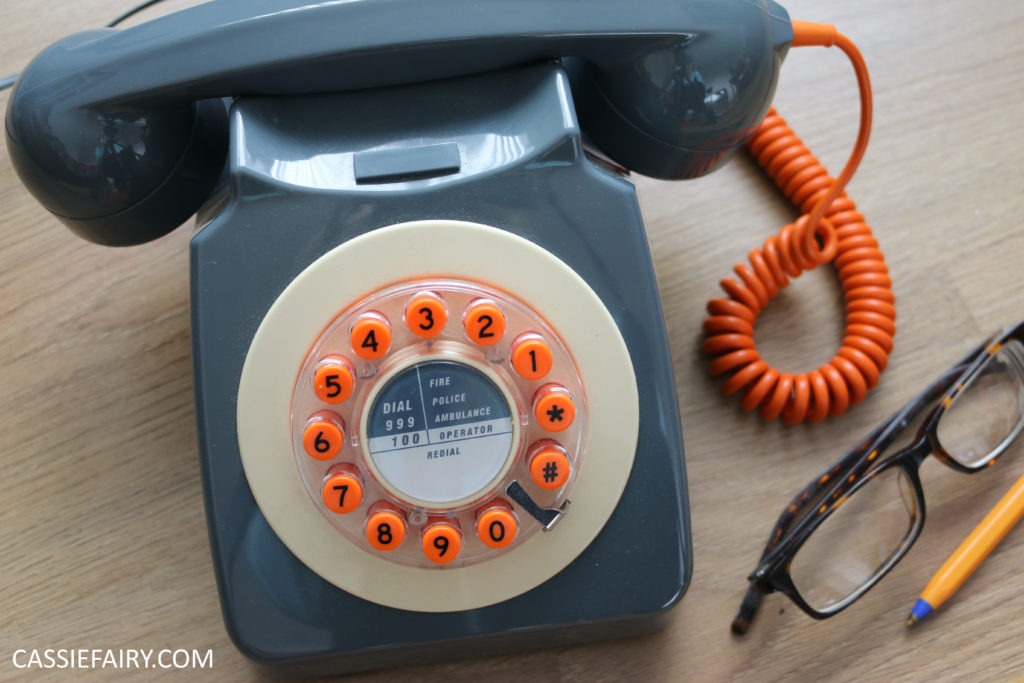
How will you brand your business?
This is the fun bit – choosing a brand name, logos, colours, deciding on what you’re going to sell (products or services) and the ethos behind your business. You can hire a designer to help you, get pre-branded Canva templates from The Creatives Desk or you can get creative and put together your own branding.
- Can you get a domain name that reflects your company name?
- Is your company name available on all social media platforms?
- Are there any other businesses with the same name as you – would their website/social accounts ruin your reputation by association?
- What colours, icons, fonts and design details do you want to include?
- Can you use an existing shop-front solution like Etsy, Payhip or eBay to sell your products?
- Or do you want to build a business website to showcase your work?
I hope that this checklist has given you some ideas for starting up your own independent business and please let me know if there’s anything else you think should be included in the list. I’d love to hear your ideas in the comments below. 🙂
Pin it for later
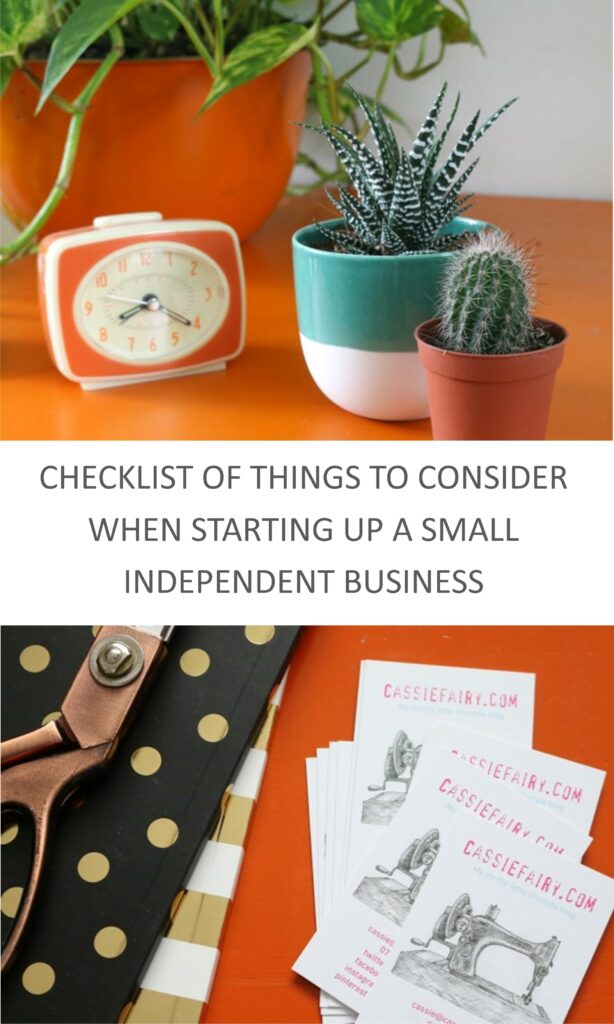
This article is a sponsored collaboration. The pink links in the content indicate a sponsored link or information source. The blog post reflects my own experience and the sponsor hasn’t had any control over my content 🙂














